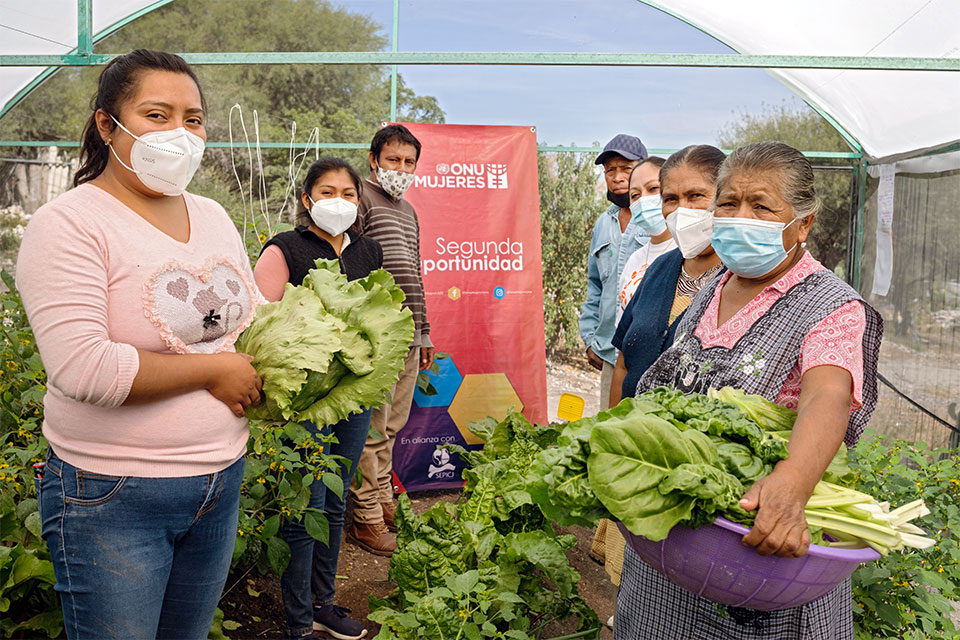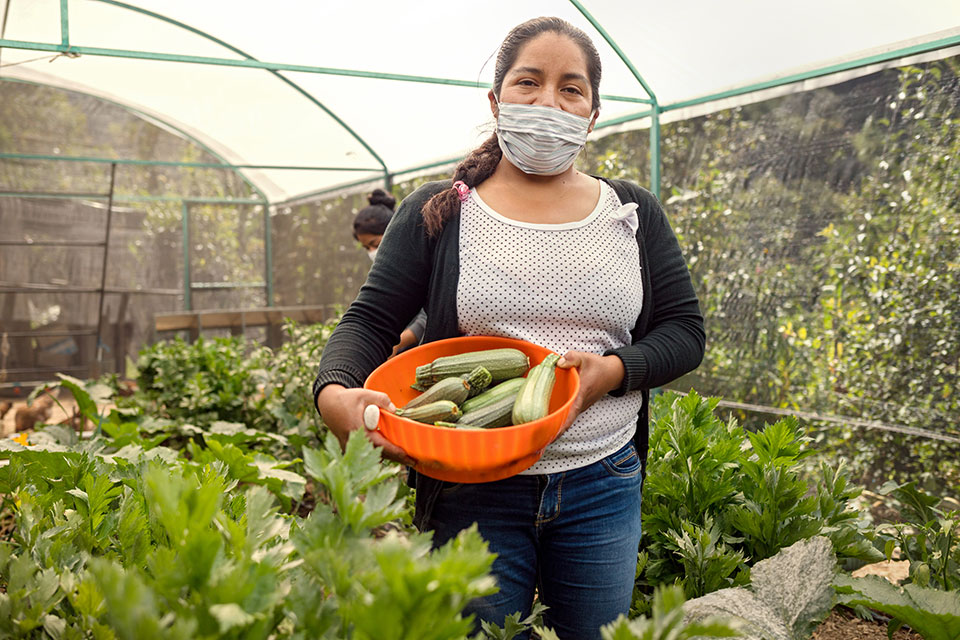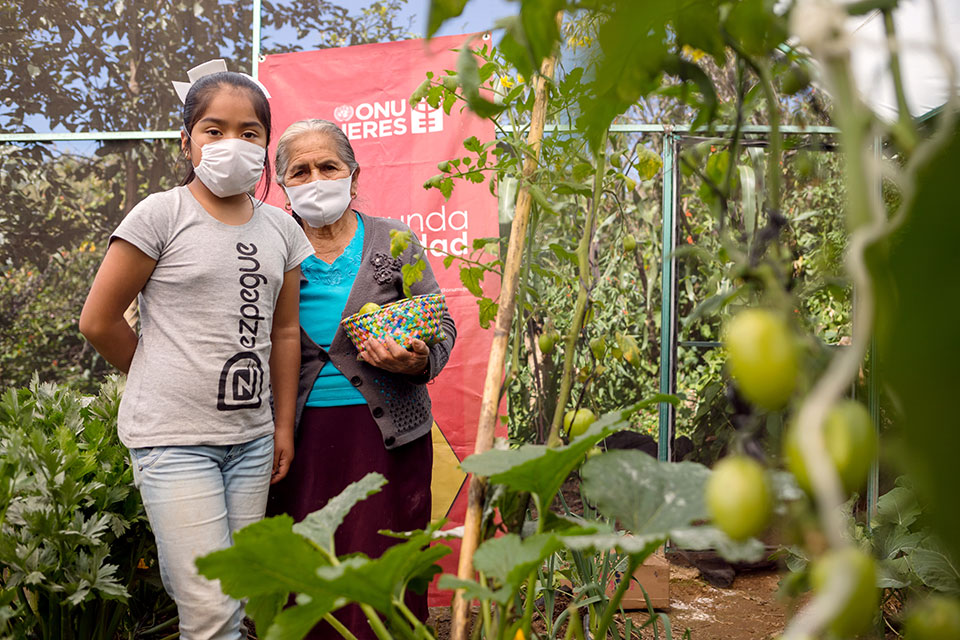Women in Mexico sow seeds of hope through the ‘Second Chance’ programme
Date:

"We need more women leaders, more empowered women,” says Maria Guadalupe Montalvo, a housewife with four children benefiting from UN Women’s Second Chance Education and Vocational Learning Programme in Mexico – which is engendering exactly that.
In partnership with the south-central state of Puebla’s ministries of Substantive Equality and Welfare and SEPICJ AC, a civil society organization, the programme trained 80 women to manage and maintain a greenhouse, to economically empower them and foster leadership skills. The programme is being implemented in rural areas in Puebla and targets women whose education was interrupted, and who want to start a business or enter the labour market.

“Second Chance is helping to change our ideals. It helps us see that women have the same rights as men. It empowers us and enables us to become enterprising women. The programme makes us feel free, and above all, responsible,” says Montalvo. She is from a community where men are usually in charge of farming.
Montalvo also feels that the programme has wider impact for families and communities amid the COVID-19 pandemic, which resulted in school closures. “My children are out of school because of the pandemic, so they help me during my shifts at the greenhouse and are able to learn how to take care of chickens and water plants.”
Another beneficiary, Monica Guadalupe Valencia, has been able to share what she has learnt from the greenhouse training with other members of her family.
"I am a housewife and my mother, grandmother and mother-in-law have been very eager to join me in applying what I’ve learnt in the programme. My 60-year-old grandmother now feels productive. My four-year-old son has also been participating and learning,” says Valencia.
While some women like Jaqueline Garcia, 24, have started marketing the vegetables they harvested, others use the produce to feed their families.

"We sold our first harvest of chard within the block we live in less than half an hour. Buyers were excited because they thought that our vegetables were fresher, larger and of better quality than those in the markets,” says Garcia.
Montalvo says, “For me, the harvest was for self-consumption because the pandemic has made things difficult for my family. As challenging as life has been, I have had a greater desire to persevere and provide my family with proper nutrition.”
“I am infinitely grateful for Second Chance,” she adds. “I feel very happy to have the opportunity to learn and relate with more people around Mexico. We have established a network of women to get to know each other, share experiences and learn, and that has been the most beautiful thing.”
SEPICJ AC adapted Second Chance to the COVID-19 context. One of the programme coordinators, Josefina Montalvo, explained: “We had to close face-to-face learning centres and explore virtual trainings, courses, forums and talks focused on helping women reintegrate into school, employment and entrepreneurship.”
“Education is key for gender equality,” says Ernesto Treviño, the erstwhile UN Women Second Chance Education Programme Manager in Mexico. “It empowers women, helps improve their livelihoods and must be understood as a stepping stone for sustainable development.”
“Second Chance, focused on empowering women through education, is thus a solid contributor to the UN 2030 agenda while transforming the lives of women and their communities,” he adds.
The Second Chance programme began in 2019 and plans to reach 5,000 women and 30,000 indirect beneficiaries by 2021 in the three states of Mexico, Jalisco and Puebla.